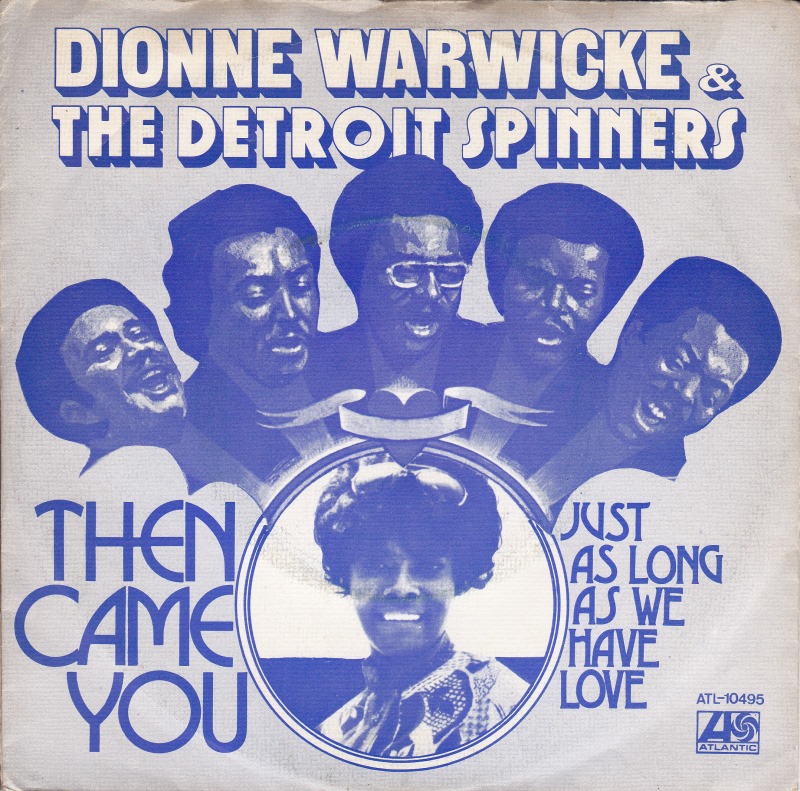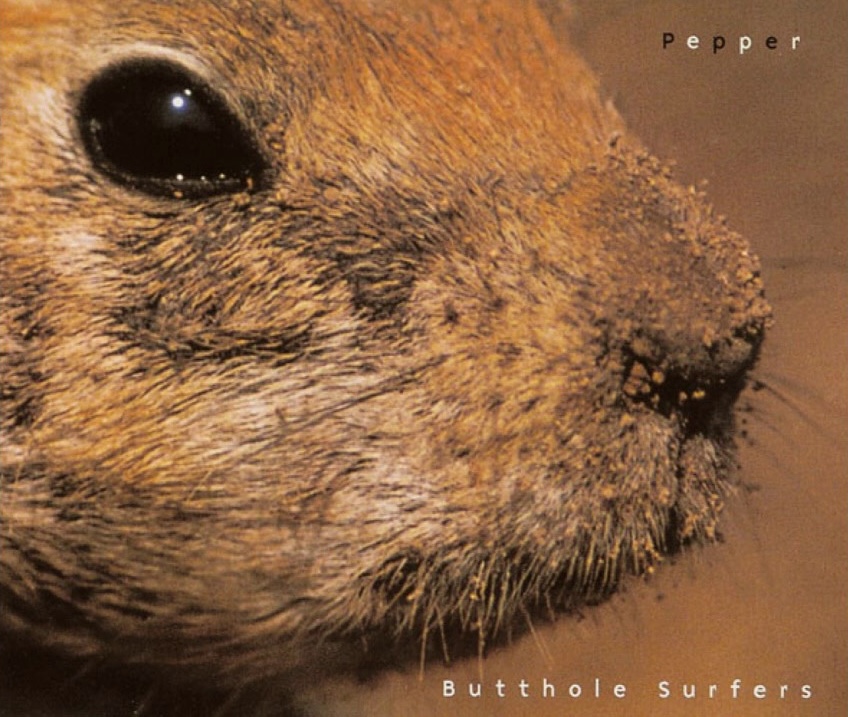In The Number Ones, I'm reviewing every single #1 single in the history of the Billboard Hot 100, starting with the chart's beginning, in 1958, and working my way up into the present.
Dionne Warwick & The Spinners - "Then Came You"
HIT #1: October 26, 1974
STAYED AT #1: 1 week
Kenny Gamble and Leon Huff were world-changers, but they didn't emerge fully formed from a vacuum. Gamble and Huff, pioneers of Philly soul, had come from a rich and varied Philadelphia scene with roots that had run deep in previous decades. Most of their collaborators in MFSB, the house band at their Philadelphia International label, came from that scene. And so did Thom Bell, the producer who had just as much to do with the sound and style of Philly soul as his old friends Gamble and Huff did. Bell didn't score as many #1 singles as Gamble and Huff, and he didn't have the same kind of label home base as they did. But he shared their gift for sonic sweep.
Gamble and Huff had been the great ornamenters of early-'70s soul music, the guys who figured out how to pile on the strings. Bell's productions relied just as much on orchestral flourishes and sweet, keening voices. But he also had a sense of the psychedelic space. Bell's productions would use unexpected touches: an electric sitar, a fuzzed-out guitar, a sudden bloom of woodwinds. Bell was still essentially making popular, down-the-middle soul ballads, but he was doing some weird and cool things with them.
Bell had known Gamble and Huff for years, and Bell and Gamble had both been part of a group called the Romeos as early as 1959. For a while, Bell toured with Chubby Checker, the first real star to emerge from Philly in the rock 'n' roll era. But he really found his footing years later as a producer, arranger, and songwriter. Starting in 1968, Bell had enormous success working with groups like the Delfonics and the Stylistics, developing the layered, romantic sounds that both groups did. And Bell also worked with Gamble and Huff, doing arrangements for groups like the O'Jays. And with one single song in 1974, Bell took two artists who had been around for a while and guided both of them to #1, for the first time in both artists' careers.
Dionne Warwick wasn't really a soul singer. Instead, she became a star in the early '60s, when Burt Bacharach and Hal David figured out what they could do with her poised, controlled, delicate voice. Warwick had come from New Jersey, and she'd been singing gospel and doing back-up vocals in recording sessions for a while before she met Bacharach. Bacharach asked her to record demos for him, and he quickly figured out that she was more of a star than the people she was doing those demos for. So Bacharach and David signed Warwick, and together, they made a string of lush, genteel supper-club jams. (Before "Then Came You," Warwick's highest-charting single was the 1967 Bacharach/David collab "I Say A Little Prayer," which peaked at #4. It's a 7.) But Warwick broke with Bacharach and David in 1971, kicking off a legal battle. She signed with Warner Bros., where she temporarily added an E to the end of her last name. There, Warwick went through a few years where none of her non-Bacharach songs were getting into the top 10. Then came "Then Came You."
As for the Spinners, they, like so many of the other great soul groups of the early '70s, had started off singing doo-wop in the '50s. The original group, first called the Domingoes, came together in the Detroit suburb of Ferndale in 1954. They released their first single in 1961 and joined the Motown roster in 1963, when Motown bought out all of the competing local label Tri-Phi. Even with the Motown machine behind them, the Spinners couldn't score a top-10 single all through the '60s. They came close once -- 1970's "It's A Shame," which Stevie Wonder co-wrote with Lee Garrett and Syreeta Wright, peaked at #14. But the Spinners were consistently overshadowed by the other titans on the Motown roster, and they left the label for Atlantic in 1972. Atlantic paired the Spinners up with Thom Bell, and things started to click. All of a sudden, the Spinners had a bunch of hits. (Before "Then Came You," the Spinners' highest-charting single was the 1972 Bell production "I'll Be Around," which peaked at #3. It's an 8.)
Warwick and the Spinners weren't really a natural combination. They came from two different worlds. But early-'70s soul had absorbed some of the Bacharach/David aesthetic, that combination of orchestral flash and emotional depth. And on "Then Came You," they make sense together. "Then Came You," written by Sherman Marshall and Philip Pugh, is a simple little trifle of a love song with a big hook. The one real memorable lyric is the one on the chorus: "I never knew love before / Then came you." Warwick and the Spinners sing the beginning of the song together, making a sort of chocolate/peanut butter combination. But as the song goes on, they break apart, with Warwick doing the leads and the Spinners ad-libbing, pushing her on. Eventually, Warwick and Spinner Phillippe Wynne are jumping back and forth on each other, vamping hard.
But it's the groove, more than the voices, that sells the song. There's a central pulse to "Then Came You," one that nods toward disco without giving in to it. And there are all these great little Thom Bell production touches to it: a flanged-out wah-wah guitar, an itchy bongo ripple, a shivery string figure. All those things are there to serve the groove, which pushes relentlessly forward. Warwick and the Spinners just surf that groove, their voices dancing on top of it. That groove is what keeps "Then Came You" memorable, and I'm guessing it's why "Then Came You" made it to #1.
The Spinners would never get back to #1 after "Then Came You," though they'd get close a few times. Warwick will be in this column again, and so will Bell, but we won't see either one for a long time. "Then Came You" isn't a masterpiece of Philadelphia soul or anything, but it's a fine piece of music, and a welcome reminder of three strong legacies.
GRADE: 7/10
BONUS BEATS: Here's Boys Noize sampling "Then Came You" on the 2010 track "Yeah":
THE 10S: Lynyrd Skynyrd's sunkissed gutbucket diss track "Sweet Home Alabama" peaked at #8 behind "Then Came You." I hope Neil Young will remember that it's a 10.






